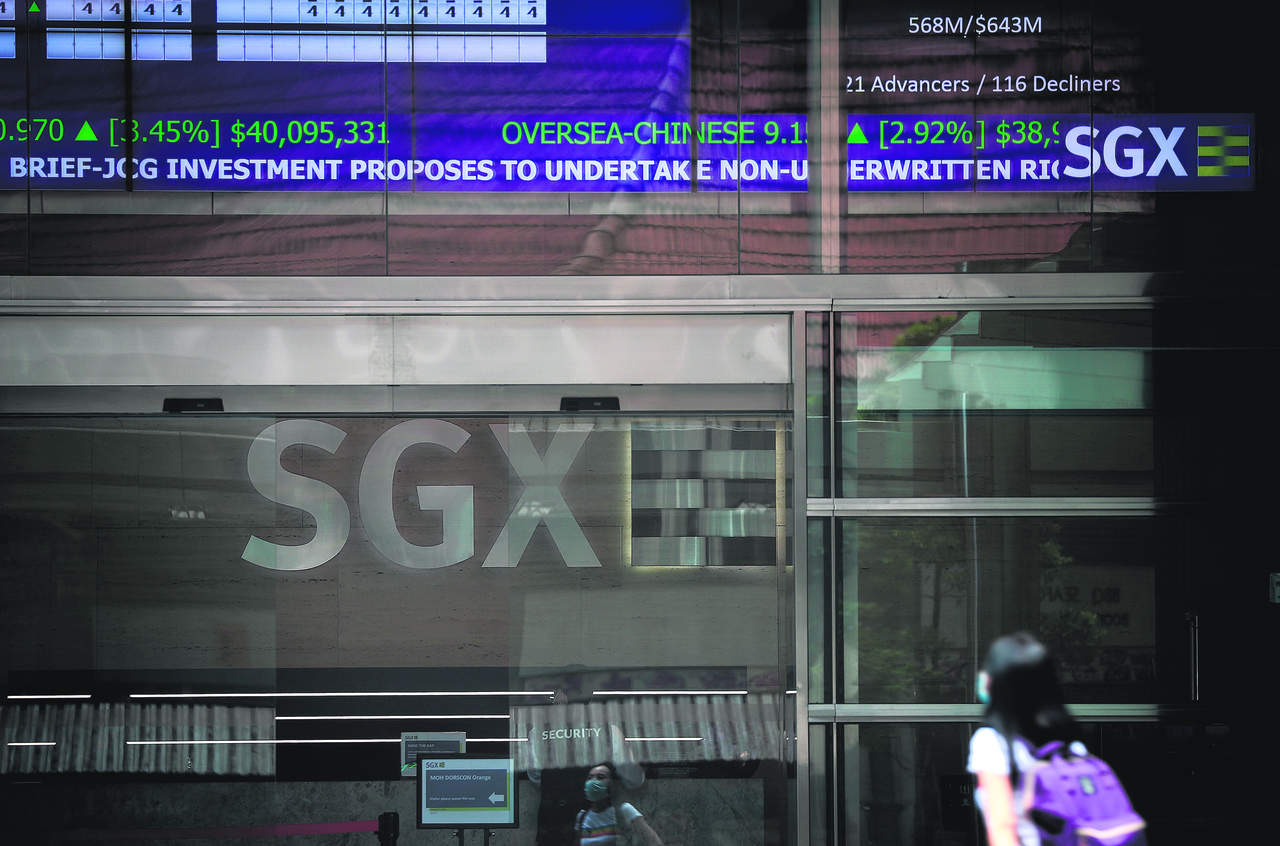SGX RegCo to require companies to answer shareholders' queries before voting
Sign up now: Get ST's newsletters delivered to your inbox

SGX RegCo will be prescribing additional timelines for companies to post the answers to SGXNet on the questions they receive.
PHOTO: ST FILE
SINGAPORE (THE BUSINESS TIMES) - Singapore Exchange Regulation (SGX RegCo) will be prescribing additional timelines to require companies to answer shareholders' queries before the deadline for shareholders to submit proxy votes, said chief executive Tan Boon Gin.
The front-line regulator will also make it a requirement for companies to hold a virtual information session (VIS) - where board or management can take live questions from shareholders - for certain corporate actions.
The changes come amid feedback relating to shareholders' questions and voting during virtual general meetings, which have become the norm following the onset of Covid-19.
Speaking during a keynote address at the Chartered Secretaries Institute of Singapore 2021 Conference on Tuesday (Nov 30), Mr Tan said: "With another round of virtual general meetings looking likely, we are going to have to tackle... feedback we have been receiving, which is that shareholders are not getting the chance to ask questions before they vote. Or that they are having their questions answered only after they have submitted their proxy forms."
Mr Tan noted that emergency legislation introduced last year enabled companies to hold virtual general meetings, and also enabled live Q&A and live voting, even though it is not a requirement to have it. SGX RegCo and the Monetary Authority of Singapore had also published a joint statement subsequently encouraging live voting and Q&A at general meetings, without making it mandatory.
Almost all of the general meetings this year did not use live voting, with only one or two companies having this, Mr Tan observed. "This means that almost all the voting was done by way of submitting proxy forms in advance of the meeting."
While companies have tried answering questions from shareholders on SGXNet and at the general meeting itself, feedback from shareholders is that the answers sometimes only come after the proxy forms to vote have been submitted.
"It is therefore not surprising that we have received feedback that the whole point of the question and answer is to help shareholders decide how to vote," Mr Tan said. "That is why, as all of us know, at a physical general meeting, the Q&A happens first before you vote."
Currently, the only prescribed timeline related to voting requires proxy forms to be submitted by shareholders 72 hours before the general meeting.
SGX RegCo will be prescribing additional timelines for companies to post the answers to SGXNet on the questions they receive. This would be between 48 and 72 hours before the deadline for shareholders to submit their proxy votes, depending on the notice period.
"This is to ensure that the shareholders have sufficient time to review the answers to questions posed, and digest them before voting," Mr Tan said.
"We recognise that shareholders must also play their part and send in the questions on time. So, companies can set a deadline for questions to come in," he added. "However, this deadline should be reasonable and in any event no earlier than seven calendar days after the notice of the general meeting."
Mr Tan also said they have noticed a "very good trend" of companies holding VIS before their extraordinary general meetings (EGM), where management or board take live questions on important issues to be voted on at a later date.
"This VIS is held before the EGM and before the deadline for shareholders to send in their votes so that the questions and answers can inform the voting," he said.
SGX RegCo will be requiring companies to hold a VIS for certain corporate actions before the deadline for shareholders to vote and, therefore, before the EGMs. The list of corporate actions include rights issues, privatisations, schemes of arrangement, interested-party transactions, major transactions and reverse takeovers.
"When companies start applying these improvements, we believe the next round of AGMs (annual general meetings) will be significant," Mr Tan said.
Mr Tan also noted that AGMs would be important next year as a new rule regarding independent directors (IDs) would take effect.
From next year, IDs who have served nine years or more will no longer be considered independent, unless two-tier approval is obtained - from all shareholders; and from shareholders excluding directors, the chief executive and their associates.
Mr Tan observed that a few companies "have already been eagerly passing two-tier votes" this year, even though the nine-year rule only kicks in next year, which would allow their directors to continue to be independent.
"This is of concern to SGX RegCo," he said, noting that one study showed that at least 300 IDs might have had their terms extended using the two-tier vote.
"Companies are expected to use the two-tier rule sparingly," he said, noting that one reason for the nine-year rule is to promote renewal and succession planning. "Yet, we saw companies that simply extended their nine-year directors without bringing in anyone new."
He added that it would be understandable if companies extended the tenure for some existing directors who are committee chairs, while bringing in new IDs for a good transition.
"But retaining an entire slate of IDs using the two-tier vote without any renewal in sight is another thing altogether, and something that we will be watching very closely," he said.
"I urge all nominating committees to use the two-tier vote very judiciously and consider how they are going to set and achieve diversity targets if there is no renewal of directors."


